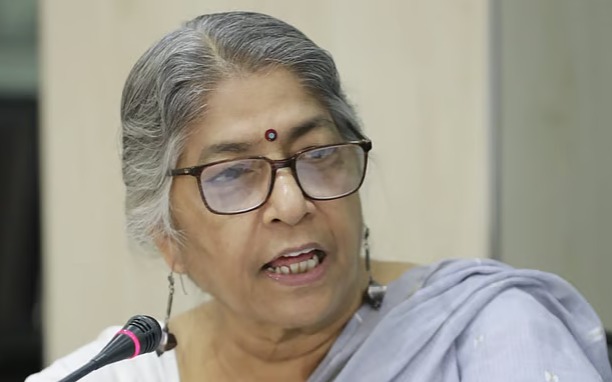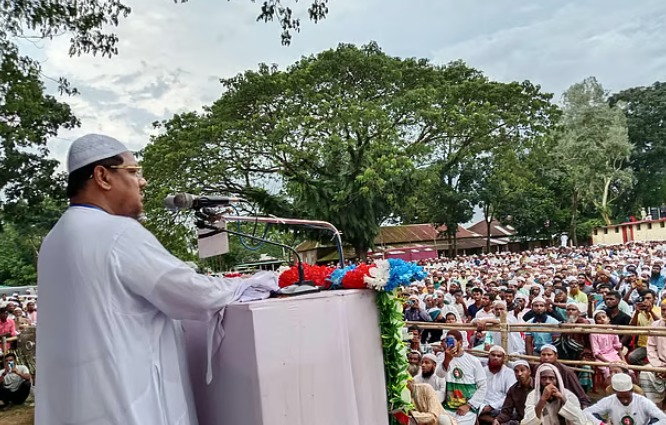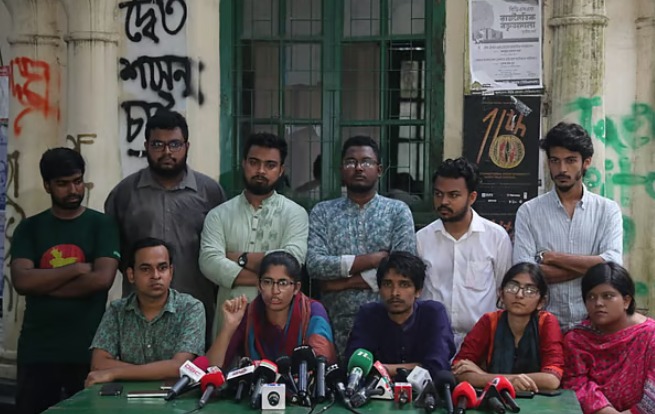Desk Report,
It is unacceptable to think of political parties as ‘boys clubs’: Shirin Haque
The existing culture of political parties in terms of women’s representation in politics and the national parliament must be changed. Shirin Parveen Haque, head of the Women’s Affairs Reform Commission, has commented that the interim government period is an opportunity to do something for women.
It is unacceptable to think of political parties as ‘boys clubs’: Shirin Haque
Shirin Parveen Haque said these words at a roundtable discussion titled ‘Women’s seats in parliament and women’s political empowerment’ at the Prothom Alo office in Karwan Bazar in the capital on Saturday. This roundtable was organized by Prothom Alo. The roundtable discussion was moderated by Prothom Alo’s associate editor Sumona Sharmin. In it, Prothom Alo’s senior reporter Nazneen Akhtar presented a concept paper on women’s seats in parliament. Stating that the existing culture of political parties cannot be accepted, Shirin Haque said, “We have to openly criticize this. If political parties think that we will pass them off as boys’ clubs, then that is not acceptable to us. We have to protest for that. They (political parties) need to change their culture.’
Regarding women’s seats in the National Parliament, Shirin Parveen Haque said, ‘When it started with 15 seats, what was the population, and what is the population now? The question needs to be raised with the entire parliament, how can 300 people represent this population? We need to increase the number of public representatives and look at women’s seats in the context of increasing that number.’ The Women’s Reform Commission has recommended reserving 300 seats for women in the National Parliament and then increasing the total number of seats to 600 with direct elections. In this regard, Shirin Haque said, ‘Our proposal is for two terms. Because, we thought, at least many women leaders will be created in these two terms and this has been proven in the Union Parishad elections at the local level.’
Regarding the proposed 600 seats, Shirin Haque said, ‘The time of the interim government is a historic opportunity to do many things. That is why this proposal. It will not be there when the political government comes. Because, I know what culture is prevailing within the political party and what culture is prevailing in the society.’ Shirin Haque further said, ‘If we do not give women a chance, if we do not open the door and if we decide to keep them outside the door, then we will not see women. It is not possible to close our eyes to seeing women.’
We have laid great emphasis on decentralization. Because, only through decentralization will grassroots women reach the center. Otherwise, they will stay there, said Shirin Haque. The roundtable meeting was also attended by Badiul Alam Majumder, head of the Electoral Reform Commission, Rasheda K. Chowdhury, executive director of the Mass Literacy Campaign and former advisor to the caretaker government, Fawzia Moslem, president of the Bangladesh Mahila Parishad, Samina Lutfa, professor of sociology at Dhaka University, Shaheen Anam, executive director of the Manusher Jonno Foundation, Khandaker Golam Moazzem, research director of the CPD, Khushi Kabir, coordinator of Nira Karir, Farah Kabir, country director of ActionAid Bangladesh, Geeta Das, president of the women’s wing, Taslima Akhtar, president of the Garments Workers’ Solidarity, Ilira Dewan, member of the Local Government Reform Commission, and Nazifa Jannat, one of the organizers and students of the July Movement.




